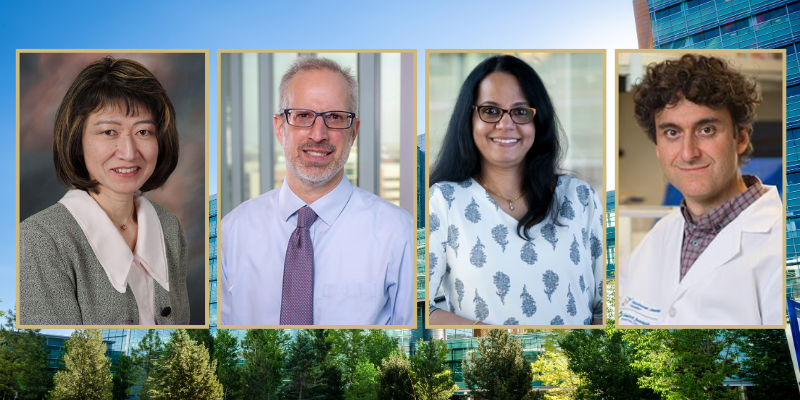Gates Institute recently announced four recipients of the 2023 Gates Grubstake Fund. These awards are designed to support investigators who are researching and developing regenerative medicine-related technologies. The awards of up to $350,000 are made annually in a process administered in collaboration with CU Innovations. The fund made awards totaling over $1.4 million to University of Colorado Anschutz researchers in 2023.
The 2023 awards reflect the breadth of research into chimeric antigen receptor (CAR) T-cell therapy underway at CU Anschutz, with all the principal investigators representing different departments within the CU Anschutz School of Medicine. The researchers and their projects are:
- Mayumi Fujita, MD, PhD, professor of dermatology: Modified CD4+ T Cells Expressing IL-37
- Jordan Jacobelli, PhD, associate professor of immunology and microbiology: Engineered CAR T Cells for Improved Solid Tumor Rejection
- Joshua Thurman, MD, professor of medicine: C3d Targeted CAR T Cells for the Treatment of Solid Tumors
- Sujatha Venkataraman, PhD, associate research professor of pediatrics: Next-Generation CAR T-Cell Therapy for Diffuse Intrinsic Pontine Glioma
"The Gates Grubstake Fund has been instrumental in supporting a campus ecosystem to study novel ways to use cell therapy in a spectrum of cancers and diseases, and across a range of technologies,” says Gates Institute Executive Director Terry Fry, MD.
CAR T-cell therapy was first approved by the Food and Drug Administration for treating certain types of blood cancers in 2017. Because of its success in achieving remission in about half of the patients, the treatment, a form of genetic engineering, is now being investigated for other types of cancers and autoimmune disease, which is reflected in the awards made through the Grubstake Fund.
However, CAR T-cell therapy is not the only form of cell and gene therapy supported by the fund.
A second-tranche award was made to Ganna Bilousova, PhD, and Igor Kogut, PhD, for a project initially funded in 2015 to support induced pluripotent stem cell (iPSC) research, another form of gene therapy. iPSCs are capable of being reprogrammed to become any cell type in the human body through a technology pioneered by Nobel Prize winner Shinya Yamanaka.
To read more about the Grubstake Fund, click here.

.png)
-1.png)
.png)